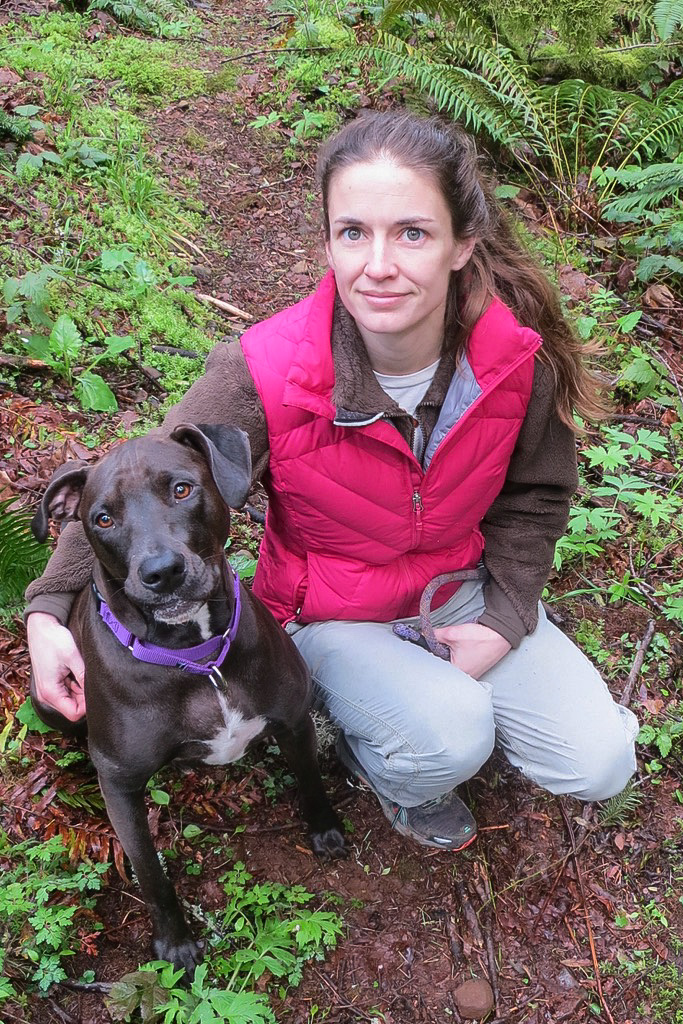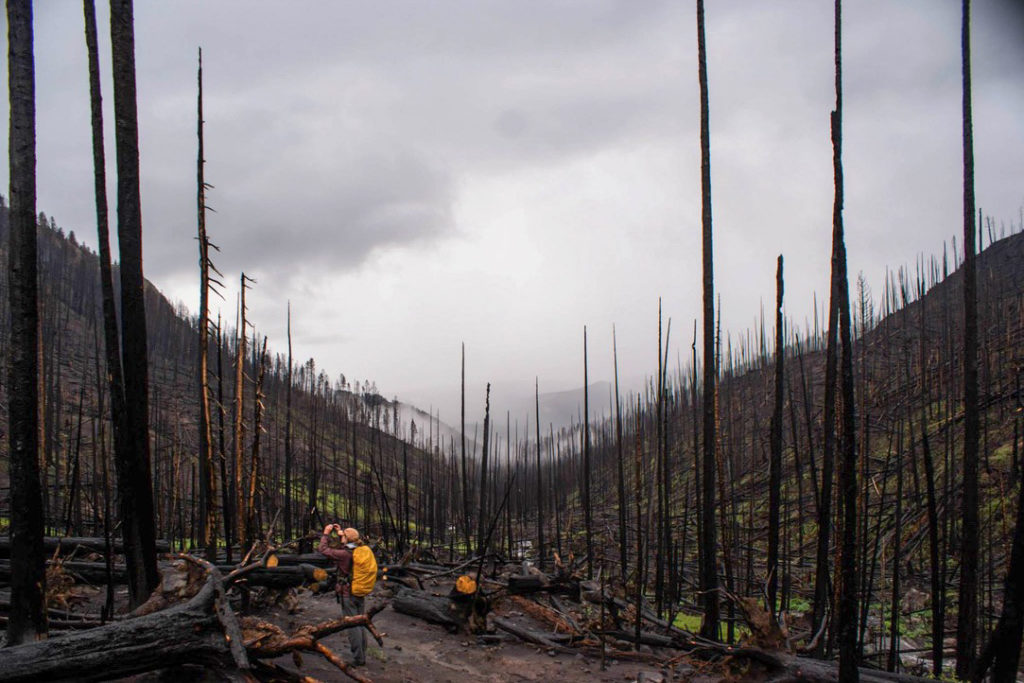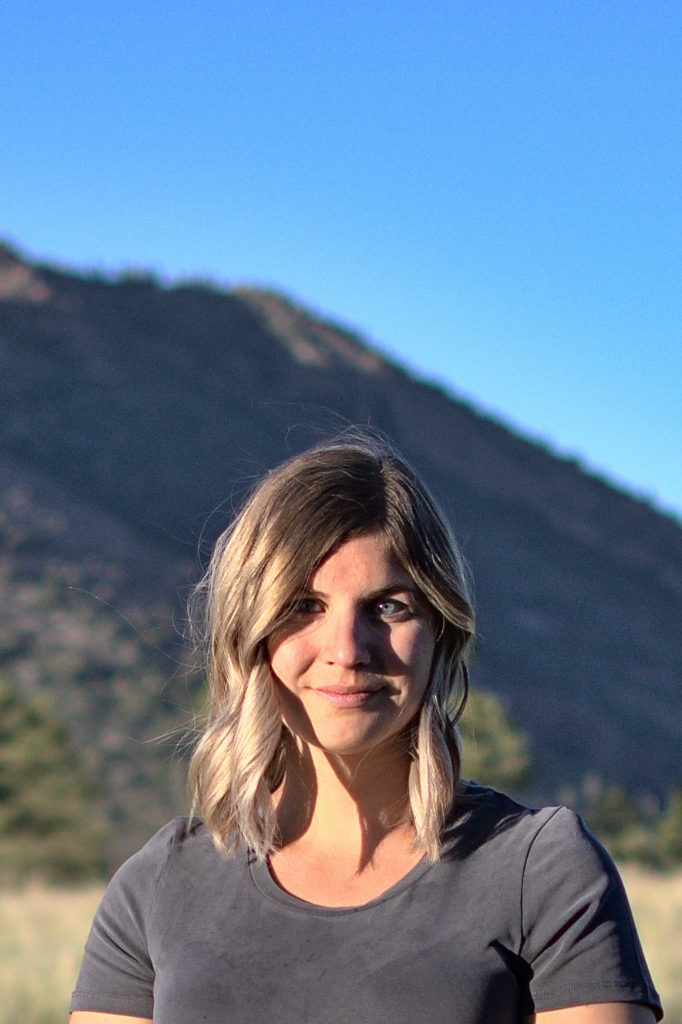Three new faculty members with individual expertise in forests, rangelands, and natural resource policy joined the Forest and Rangeland Stewardship (FRS) department at the beginning of the year.
Sarah Hart and Caroline Havrilla are new tenure-track professors in applied forest ecology/silviculture and rangeland ecology and management respectively. Robin Rothfeder is a new assistant professor focused on teaching natural resource policy. Department Head Linda Nagel said their unique areas of expertise are important additions to the department.
“Our new faculty are dedicated scholars and inspiring educators who will make significant contributions to the management of forests and rangelands, while strengthening our programs and shaping the direction of our department into the future,” Nagel said. “We are so fortunate to have Sarah, Carrie and Robin joining our team, bringing their diverse experiences and perspectives.”
These faculty members have taken different paths to arrive at CSU. Their journeys are examples of how passion and curiosity for the outdoors can intuitively lead to an ideal vocation within the many natural resource fields available.

Sarah Hart
Assistant Professor in Applied Forest Ecology/Silviculture
Heart and Passion for Rocky Mountain Forests
Sarah Hart found her initial escape from New Jersey suburbia and concrete in another country. She completed her undergraduate and graduate degrees separately among the different forests in eastern and western Canada. However, it was love at first sight when an undergraduate research project took her to the Rocky Mountain spine of North America. Hart said studying tree rings there gave her a new appreciation for how trees and forests change.
“That opportunity introduced me to a perspective of how slowly things can change, and a need for a longer-term perspective to understand ecosystems and their management,” she said.
Since completing her Ph.D. at the University of Colorado Boulder in 2014, Hart’s research interest has focused on how disturbances, such as bark beetle epidemics and wildland fire, are changing Rocky Mountain forests. Rather than isolating these two phenomena, she focuses on the interactions between these two disturbances. By connecting the physiology of individual trees to larger forest ecosystems, she hopes to help guide forest management on a trajectory towards future sustainability.

Colorado is primed for Hart’s research expertise. The state’s forests have endured separate mountain pine bark beetle and spruce beetle epidemics since the turn of the century, both of which she has conducted previous research on. These same forests have also been subject to some of the largest wildfires in Colorado’s history over that time period; the largest two just recently occurring in the Fall of 2020. Hart happened to be in Colorado last October and experienced history and the smoke in person.
“There are now many new opportunities to look at questions about the character of and intervals between these two disturbances,” she said.
Hart said she is excited to reconnect with colleagues in Colorado and engage with students in the FRS department. She said this new position is an opportunity to adapt and leverage expertise and efforts at all levels of scholarship and practice.
Caroline Havrilla
Assistant Professor in Rangeland Ecology and Management
From Theory to Application in Western Rangelands
Carrie Havrilla said she’s taken with foreign ecosystems. As a Michigan native, she grew up with no shortage of green landscapes or water. While teaching middle school science from 2011-2013, she volunteered in a lab conducting plant genetics research for western landscapes that lack both. She had never been to the western U.S., and the plant and soil interactions from that area seemed to be from a different planet.

This curiosity took her to canyon country near Arches and Canyonlands National Parks in southeast Utah to complete separate research projects during her master’s and doctoral degrees. While studying and living on a working ranch co-managed with The Nature Conservancy, Havrilla said her focus on basic ecology began to shift to a broader vision of improving land management in the western U.S.
“It’s impossible to think about ecology in rangelands across the west and not think about humans,” she said. “The Redd family at Dugout Ranch was very interested in the future of the ranch for their family and the health of the land. Working on research that addresses both the social and ecological aspects of management became really important to me.”

Havrilla’s CSU position has an extension appointment which will connect her with other stakeholders and landowners across Colorado and the west. She is looking forward to engaging with likeminded people in what she sees as a “hotspot for thinking about rangelands in the west.”
“This interface between stakeholders and academics at CSU involves all the types of people who will determine the fate of western rangelands,” Havrilla said.
Havrilla is interested in thinking critically about how humans are interacting with landscapes not as an organism that exists in it, but as drivers of ecosystems. She is excited to bring students on this journey studying plant and soil ecology at community and ecosystem levels, rangeland restoration, and adaptive management in the context of global change.

Robin Rothfeder
Assistant Professor in Natural Resource Policy
Choosing His Own Teaching Adventure
Robin Rothfeder enjoys exploring and teaching others how to do just that. Having grown up at the foot of Utah’s Wasatch Mountain range, he was well positioned for outdoor opportunities in water-based recreation across the west. For several years after college he tried to ski 100 days each winter and kayaked waterways each summer. He even spent many childhood winters on a family boat in the Caribbean Sea, to which he attributes his initial introduction to stewardship.
“Sustainability was instilled in me on that boat,” Rothfeder said. “A boat is a microcosm for environmental stewardship. You have a finite amount of fresh water you can use, and when it’s gone it’s gone. You also can’t escape from the pollution made living on a boat.”
This love for various forms of water inspired his research interests in water resources, management and policy, and guided his interest in teaching at the university level. Rothfeder said his undergraduate professors opened his eyes to the subjects he is now an expert in. That education initially inspired him to start a program called EARTH Utah that held summer camps and after school programs centered on environmental education activities.
A subsequent teaching fellowship during his master’s program, and further doctoral research exploring the nexus of water and energy management connected his personal motivations and professional pursuits to teach at a university.

“I would love to have the impact on students that my professors and mentors had on me,” Rothfeder said. “Teaching through a socio-ecological lens reflected a world view I gained from my own experience and expertise, and having these connections improved my collective learning and effectiveness as a steward.”
In his courses at CSU, Rothfeder aims to also make the real world relevant in the concepts, ideas and terminology he will be teaching. Having spent the last few years in Wisconsin, he said he is excited to return and revisit water and land issues in the west. He also looks forward to helping his students explore management partnerships and policies shaping these landscapes he calls home.